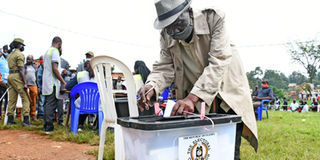Why many politicians fail in their ambitions

Many politicians happen to fall prey to Benjamin Franklin’s famous quote: “If you fail to plan, you are planning to fail!” This is because in their campaigns, they have been showing us what they have done instead of showing and telling us the plans and vision he has for Uganda.
A campaign is an organised course of action to achieve a goal. Achieving a goal requires setting objectives that are specific, measurable, achievable, and relevant and time bound. Every campaign should start with the question, “How can I win?” Unfortunately, many times, the decision is made on the basis of anecdotal evidence or by simply assuming that because one political party is dominant, victory is assured. What is needed, of course, is an analysis of past election results and the demographics of the electorate. That is just a starting point.
The nature of the election can also determine campaign strategy. Is the candidate running against an incumbent? Or, for an open seat? Has there been a catalyst or event that could change the dynamics of the election? Is a runoff possible if no candidate gets 50 +1 votes? Or, is it “winner takes all”?
After all the important variables have been considered, the candidate must create a written campaign plan. Contained in the plan is a theory of how to win the election. The theory should be backed by empirical evidence rather than speculation or hearsay. Organising and planning a campaign should be the other area of focus. Most campaigns cannot succeed without a campaign plan. Once a written campaign plan is in place, the infrastructure of the campaign must be filled out. Volunteers are just as important as money.
They not only represent a resource to fill some of the jobs in a campaign, but they are also a demonstration to other voters that the candidate has grassroots support. That is when the enthusiasm for a candidate can become contagious.
John Chrysostom Angwella,
[email protected]




